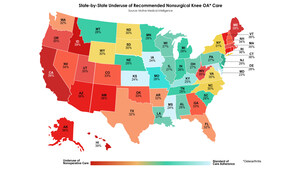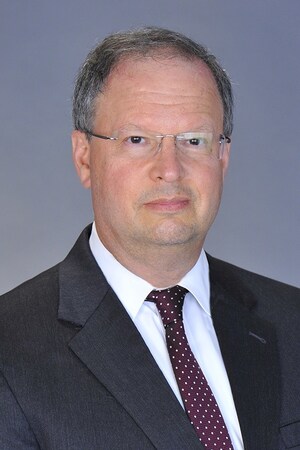
New national insights data from Motive Medical Intelligence show persistent overuse of unnecessary endoscopy for heartburn, with sharp geographic disparities.
SAN FRANCISCO, Nov. 12, 2025 /PRNewswire/ -- Despite years of professional guidance discouraging doctors from performing routine endoscopy for heartburn—known medically as gastroesophageal reflux disease, or GERD—new national insights data from Motive Medical Intelligence (Motive) show that millions of Americans with simple heartburn still undergo unnecessary upper endoscopy, driving significant waste in healthcare spending.
GERD affects roughly one in five adults in the United States, according to estimates from the American College of Gastroenterology. It accounts for more than nine million outpatient visits each year and costs the healthcare system more than $24 billion annually, much of it tied to wasteful use of diagnostic procedures.
Analyzing data from more than 100 million insurance claims from the 24-month period from July 2022 through June 2024, Motive found that EGD continues to be performed in about 11% of visits for GERD nationwide, despite long-standing professional society recommendations to the contrary.
"These results underscore a persistent pattern of low-value care," said Dr. Richard Klasco, Chief Medical Officer at Motive Medical Intelligence, a leading healthcare data and analytics company advancing physician-level performance and value-based care. "Such findings highlight an important opportunity to bring clinical practice into better alignment with national guidelines."
Guidelines Ignored
Professional societies have long cautioned against the use of EGD for simple heartburn. The American College of Gastroenterology and the American Gastroenterological Association both advise that EGD should be reserved for patients with so-called "alarm" symptoms—these include difficulty swallowing, bleeding, or weight loss. But for most patients with uncomplicated heartburn, the diagnosis can be based on symptoms and can be confirmed by response to acid-suppressing medications, such as omeprazole (brand name Prilosec).
The evidence supporting these recommendations is not new. In 1987, a pivotal study published in the Lancet demonstrated the efficacy of acid-suppressing therapy for GERD. In 1999, a randomized, double-blind, placebo-controlled trial showed that empiric acid suppression could result in "significant cost savings and decreased use of invasive diagnostic tests."
Regional Variations
Motive's analysis highlights wide variation in practice patterns across the country. Physicians in New England tended to adhere most closely to the professional society guidelines, compared with those in the West and Southeast, who lagged behind. Maine, New Hampshire, and Delaware had the lowest rates of unnecessary EGD use, while Wyoming, Iowa, and Alaska were among those whose rates were highest.
"These variations are not just clinical curiosities—they represent real differences in cost, patient burden, and healthcare value," Klasco said.
About Motive Medical Intelligence
Motive Medical Intelligence is redefining healthcare performance analytics with an emphasis on transparency, physician trust, and real-world actionability. Motive is the partner of choice for organizations committed to eliminating low-value care and thriving in value-based care models. Through its proprietary Practicing Wisely solution, Motive is helping the industry eliminate the $400 billion in annual waste in the U.S. health system, advancing the transition to high-value, patient-centered care, and achieving the quadruple aim. Learn more here.
Media: Mardi Larson, Amendola for Motive Medical Intelligence, [email protected]
SOURCE Motive Medical Intelligence







Share this article